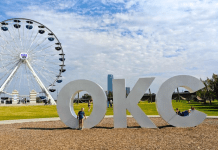 I want to tell you about my daughter. She is a teenager now – stunningly gorgeous, and more woman than child. She is kind and loving, forgiving, and exceedingly empathic.
I want to tell you about my daughter. She is a teenager now – stunningly gorgeous, and more woman than child. She is kind and loving, forgiving, and exceedingly empathic.
In many ways, she is like I was at her age – independent and creative, loves to read and write. Also though, my daughter will walk through life in ways I can never completely comprehend.
You see, she is black. And I’m not.
When I was in the process of adopting my daughter, I believed I was doing everything “right”. I read informative and eye-opening books (Why are all the Black Kids Sitting Together in the Cafeteria and Black Baby, White Hands were great ones available at the time-many more are available now). I completed the required adoption education and even utilized the flexibility of my graduate school program to spend my time researching adoption trauma and interracial families.
And yet, to this day, I am still blown away by how much I didn’t (and still don’t) know about racism in America. You could say I was blissfully unaware or optimistic, but the truth is: I’m just privileged. I didn’t know about Juneteenth until a few years ago, had no idea about the Tulsa Massacre until last year, and just last week learned that Central Park was only created after evicting a settlement of nearly 300 African-Americans. If you white mamas already knew about these things, please don’t tell me about it. I find myself saying “I was today years old…” a LOT these days.
It’s embarrassing.
And I can’t help but wonder how badly I am failing my daughter.
I can’t teach her what I don’t know. And she needs to know. She needs to know African-American history – all of it, not just the whitewashed history. She needs to know about the atrocities and the celebrations. She needs to know Maya Angelou and Toni Morrison and Langston Hughes and Alice Walker and Frederick Douglass. She needs to know how to be safe. But you know what? We all need to know. I need to know these things to share with my dark-skinned daughter, but my white sons need to know too. Yours do too.
They need to know those things so that “celebrating differences” actually means something. So that our children recognize injustice when they see it and speak out against it. So that our children learn empathy and can accept another person’s life experience as true, even if they didn’t have the same experience.
This means that as a parent and a citizen, I need to delve deeper. I need to ask more questions, listen longer, and engage more thoroughly.
Though that will look different from day to day, this week that means our family is talking about and honoring Juneteenth – a date celebrating June 19, 1865, when the last remaining slaves in Texas were freed. Though the Emancipation Proclamation had gone into effect on January 1, 1863 – two and a half years earlier – Texas was the most remote of the slave states, with the fewest Union soldiers occupying it. As a result, enforcement of the Emancipation Proclamation was inconsistent. The arrival of 2,000 federal troops on Galveston Island changed that, immediately freeing an estimated 250,000 slaves in Texas.
Former slaves celebrated after the announcement on June 19, and began organizing annual celebrations the following year. Early celebrations were largely church-centered community gatherings in Texas, with celebrations spreading across the South in the years following. Today, 47 out of the 50 states have declared Juneteenth either a state holiday or a special day of observance. Celebrations are largely local, and traditions include readings of the Emancipation Proclamation, songs such as “Swing Low, Sweet Chariot” and readings of works of famed African-American authors. Celebrations also include food festivals and barbecue, rodeos, historical reenactments – even Miss Juneteenth contests. Fun trivia: strawberry soda is a drink commonly associated with the celebrations.
Modern celebrations place a great deal of emphasis on education around African-American history, as well as instilling a sense of pride in African-American youth. Modern celebrations also often include voter education and encourage eligible voters to register.
Though Oklahoma Juneteenth celebrations have been canceled this year due to COVID-19, we are seizing this opportunity to talk about African-American heritage at home. We might even get some barbecue and strawberry soda – my kids always pay better attention when food is involved.
Did you know what Juneteenth is? What else have you learned over the past few weeks?


















